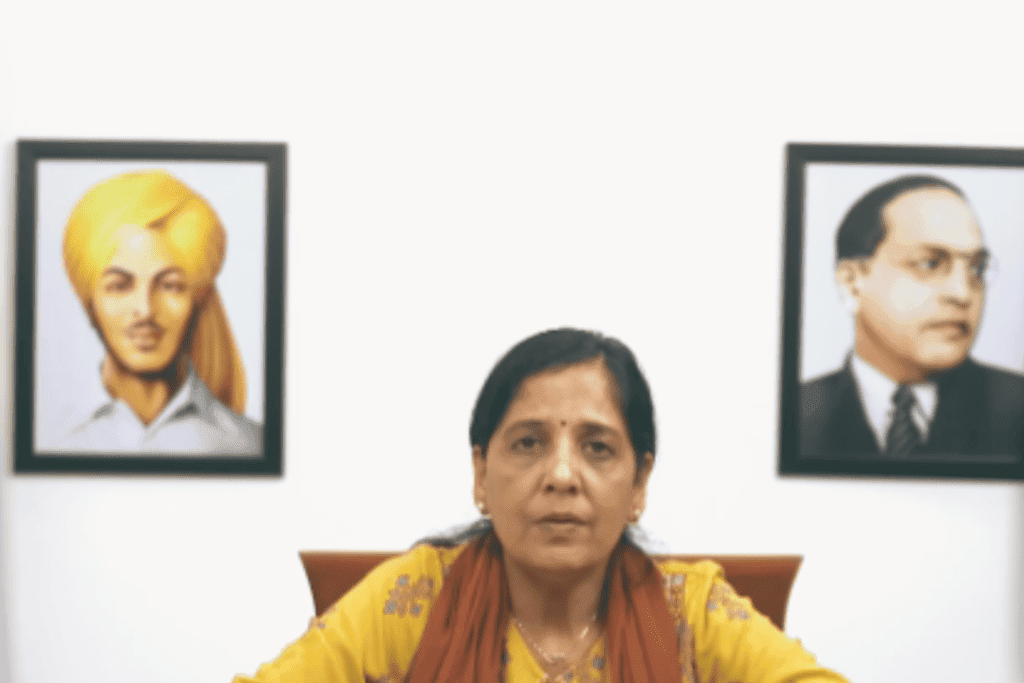Arvind Kejriwal, the enigmatic Chief Minister of Delhi, has often been a figure of intense scrutiny and debate. Recently, an astonishing comparison has emerged, placing him in the same breath as Pablo Escobar, the infamous drug lord known for running his empire from behind bars. Though controversial, this comparison invites a deeper examination of Kejriwal’s leadership and governance style. Could it be that Kejriwal, revered by many for his anti-corruption stance, shares more in common with Escobar than meets the eye?
News Trajectory seeks to explore the emotional and political landscape of New Delhi under Kejriwal’s leadership, dissecting the parallels drawn with Pablo Escobar’s reign. Through a nuanced analysis, we aim to understand whether the analogy holds any truth and what it signifies for the citizens of New Delhi.
The comparison to Pablo Escobar arises from the perception of Kejriwal’s governance style as being authoritative and centralizing power. Escobar, known for his ruthless control over his drug empire, allegedly managed his operations from prison, demonstrating an unparalleled grip on his organization. This parallel draws attention to the question: Does Kejriwal exert similar control over his government and party?
The political landscape of India, particularly the capital, New Delhi, stands at a curious juncture following the arrest of the Chief Minister, Arvind Kejriwal. The event has thrown the Aam Aadmi Party (AAP) into a whirlwind of speculation and strategic recalibration. Drawing an unusual and highly controversial parallel by the BJP, questions have emerged regarding whether Kejriwal will take a leaf out of Pablo Emilio Escobar Gaviria’s book and attempt to run the government from the confines of his prison cell.
One striking similarity between Kejriwal and Escobar is their strategic use of influence. In their respective fields, both figures have demonstrated an ability to sway public opinion and manage their operations through charisma and fear. This section delves into Kejriwal’s control and influence mechanisms and how they compare to Escobar’s tactics.
The comparison between Kejriwal and Escobar also highlights the complex relationship between public perception and reality. While Kejriwal is celebrated for his dedication to public service, his juxtaposition with Escobar prompts a re-evaluation of his leadership. This section explores the dichotomy between Kejriwal’s public image and the criticisms of his governance.
Ultimately, the analogy between Arvind Kejriwal and Pablo Escobar raises questions about the legacy of leadership. Is Kejriwal building a government that prioritizes the welfare of its citizens, or is he crafting a persona that overshadows the substantive work of governance? This section examines the implications of Kejriwal’s leadership style for the future of New Delhi.
The arrest of Kejriwal has sent shockwaves through Indian politics, raising eyebrows and sparking debates across the nation. As the leader of the AAP, his governance has been marked by ambitious reforms and a commitment to transparency, earning him both accolades and criticism.
The mention of Pablo Escobar, a name synonymous with the Medellin drug cartel, in the same breath as Kejriwal by the BJP, may seem incongruous at first glance. Escobar’s notorious reign in Colombia was characterized by a blend of Robin Hood-like populism and ruthless criminality, which are diametrically opposed to Kejriwal’s political persona. However, the comparison arises from Escobar’s infamous tenure as a congressman in Colombia, where he continued to influence governmental proceedings from behind bars.
Arvind Kejriwal’s current predicament is compared to the infamous Pablo Emilio Escobar Gaviria, albeit metaphorically, which sheds light on the gravity of the situation. While Escobar’s reign in Colombia was marked by a notorious blend of charisma, fear, and governance from his ‘La Catedral,’ Kejriwal’s leadership has been synonymous with a relentless fight against corruption and a pledge towards transparent governance.
The mention of Pablo Escobar, a name synonymous with the Medellin drug cartel, in the same breath as Kejriwal by the BJP, may seem incongruous at first glance
The notion of Kejriwal continuing his duties as the Chief Minister of Delhi from behind bars is unprecedented and introduces a complex narrative in the democratic setup of India. The concept of ‘plata o plomo,’ a term made famous by Escobar, symbolizing the choice between accepting a bribe or facing bullets, allegedly a starkly contrasts with AAP’s foundational ethos of integrity and public service.
The heart of the matter lies in whether Kejriwal, now under arrest, can or will attempt to govern Delhi from his detention. The Indian legal and political frameworks provide no precedent for such an occurrence, making this speculation a fertile ground for discussion.
The AAP has historically prided itself on its grassroots approach and robust public engagement. The party’s leader’s arrest poses a unique challenge, testing its resilience and adaptability. The public’s reaction, ranging from outrage to support for the law enforcement process, mirrors the polarized political climate.

Legal experts argue that while the Constitution does not explicitly forbid a detained individual from holding office, the practicalities of governing from incarceration are fraught with legal and ethical dilemmas. Moreover, such a scenario could have vast political ramifications, affecting the AAP and the broader dynamics of Indian politics.
The arrest of a sitting chief minister raises questions about the continuity of governance and the implementation of policies. AAP’s governance model, centered around transparency and public welfare, faces a critical test of its durability and effectiveness.
The media’s role in shaping public perception during this tumultuous period cannot be overstated. The narrative around Kejriwal’s arrest and the comparisons to figures like Escobar are potent examples of how media framing can influence public opinion and political discourse.
Globally, there have been instances where political leaders have attempted to exert influence through detention. These cases offer insights into the potential challenges and opportunities Kejriwal might face if he tried to govern from jail.
The ethical considerations surrounding the idea of governing from detention are complex. They touch on legality, morality, and the practical implications of democratic governance.
The reaction of opposition parties to the notion of Kejriwal running the government from jail is mixed, with some decrying it as a mockery of democracy, while others adopt a wait-and-see approach, recognizing the unprecedented nature of the situation.
The impact of Kejriwal’s arrest on the AAP’s future electoral prospects is a matter of intense speculation. The party’s ability to navigate this crisis could either bolster its image as a resilient fighter for justice or tarnish its reputation.
Social media has become a battleground for narratives surrounding Kejriwal’s arrest. Supporters and detractors use these platforms to rally support, disseminate information, and shape the public discourse.
The legal proceedings following Kejriwal’s arrest will be closely watched. Potential outcomes range from exoneration to conviction. These proceedings will determine Kejriwal’s fate and have broader implications for political accountability in India.
As the AAP grapples with this crisis, several potential strategies and scenarios could unfold. These range from strengthening the party’s internal cohesion to possible fragmentation under the strain.
The arrest has ignited a debate among the public about the role of political leadership and the boundaries of legal action against elected officials. Civic engagement and public discourse around these issues are at a peak.
The judiciary’s role in this saga is crucial as it navigates the fine line between legal proceedings and political implications. The judiciary’s independence and integrity are critical factors in the unfolding drama.
Political commentators offer a range of analyses on the situation, from viewing it as a straightforward legal matter to interpreting it as a complex political strategy by AAP’s opponents.
The long-term implications of this event for Indian democracy are profound. It raises questions about the balance of power, the role of law enforcement in politics, and the resilience of democratic institutions in the face of crisis.
The arrest of Arvind Kejriwal and the ensuing speculation about his potential governance from detention represents a watershed moment for the AAP and Indian politics. While the comparison to Pablo Escobar is sensationalist, it underscores the extraordinary nature of the situation. As the AAP, the judiciary, and the public grapple with these developments, the coming months will be critical in shaping the trajectory of democracy in India.
The arrest has plunged the city of Delhi into an emotional quagmire, with public sentiment oscillating between disbelief, anger, and a deep sense of betrayal. This event’s implications extend beyond the immediate legal proceedings, touching the very core of AAP’s relationship with its constituents.
The future of the AAP after Kejriwal’s arrest hinges on the party’s ability to rally its base, strategize effectively, and navigate the tumultuous waters of Indian politics. The leadership vacuum presents a challenge and an opportunity for the AAP to reassert its principles and vision for Delhi.
Leadership becomes the beacon of hope and direction in times of crisis. The party’s response to Kejriwal’s arrest, strategy for governance in his absence, and ability to maintain unity will be crucial in determining AAP’s future trajectory.
The party’s actions, resilience, and commitment to its ideals will be closely watched as AAP navigates through this critical juncture. The possibility of governing from behind bars, while a narrative filled with dramatic flair, remains a complex and challenging political proposition.
The arrest of Arvind Kejriwal marks a critical point in AAP’s journey and the future of Delhi’s governance. Amidst the emotional turmoil and uncertainty, the spirit of democracy and the rule of law must prevail, guiding the path forward for AAP, Delhi, and its people.
Delhi’s populace finds itself at a crossroads, torn between cynicism bred by years of political disillusionment and the hope that AAP promised. Kejriwal’s arrest rekindles age-old debates about the nature of power and the possibility of genuine change within the established political system. The emotional narrative transcends mere politics, touching on more profound questions about justice, reform, and the very soul of Indian democracy.
Meanwhile, as the legal proceedings unfold, the judiciary emerges as a critical player in this saga. The courts hold the key to Kejriwal’s fate and carry the burden of public trust. In a nation where the judiciary is often seen as the last bastion of hope against political excesses, the handling of this case will be scrutinized through an emotional and ethical lens. The judiciary’s actions will reinforce faith in the system or exacerbate despair among those who yearn for justice and accountability.

